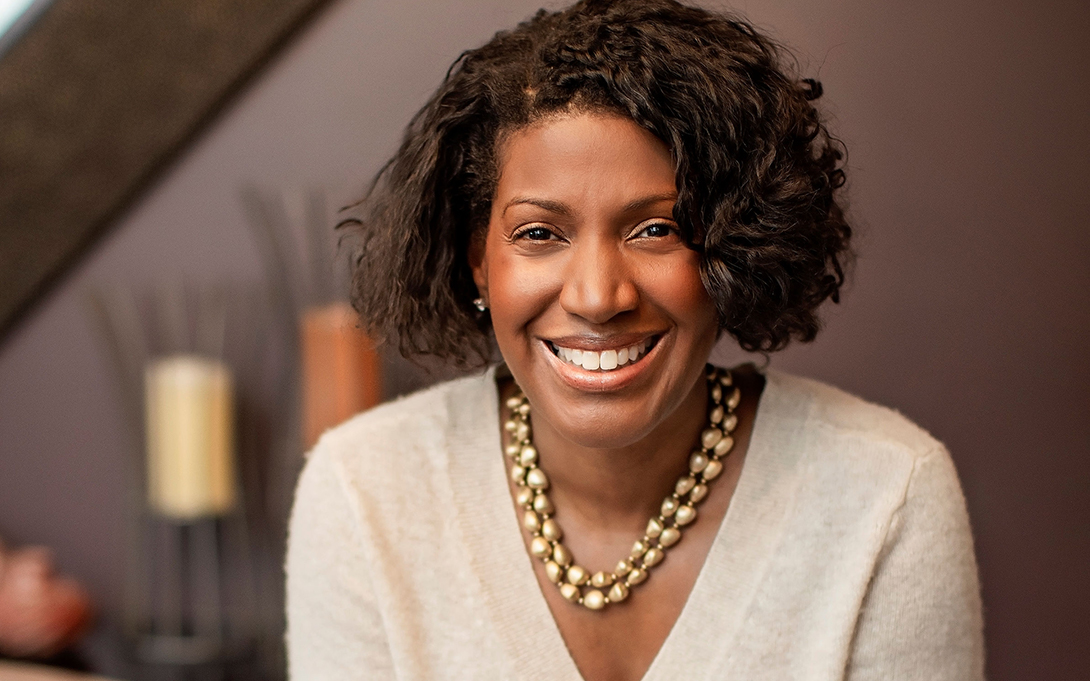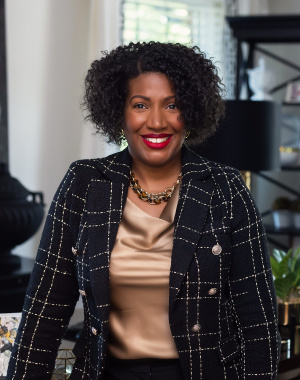
New Ford School sociologist Celeste Watkins-Hayes works at the intersection of inequality, public policy, and institutions, with a special focus on urban poverty and race, class, and gender studies. Her most recent book Remaking a Life: How Women Living with HIV/AIDS Confront Inequality, uses a rigorous qualitative approach to understand the experiences of women to inform policy. The book has garnered numerous awards (see list below).
In winter 2021, Watkins-Hayes will teach a graduate course, PubPol 750: Interview Methods, and an undergraduate course, SOC 295: Pandemics: Social Dimensions of HIV and COVID-19.
We sat down with Professor Watkins-Hayes to learn more about her approach to research and how she uses her findings to inform policy discussions.
What drives your interest in studying women living with HIV/AIDS?
Watkins-Hayes: I’m really motivated by a desire to offer analyses and prescriptions, based on empirically- and conceptually-rich research, that address the real-world issues that limit human potential.
By interviewing women living with HIV in Chicago, as well as HIV activists and policymakers all over the country, I have sought to understand both the lived experiences of health inequities and women’s unsung impact on health policy. The women in my research also give us a window into a fundamental human process: to go from dying from to living with to thriving despite injuries of inequality.
How do you approach this type of research?
I like to start with a topic that is policy-relevant and think about how policy can benefit from hearing from the people most affected. I think that an understanding of history, strong analytical skills, engagement with theoretical frameworks, and people skills are critical for qualitative policy research. People may dismiss people skills as “soft” or unrelated to rigor, but I actually don’t think you can have rigor in qualitative research without warmth, empathy, and deep listening. In my book’s methods appendix, I also talk about the need to do one’s homework by reading about, studying, and spending time with the communities we are engaging for research.
What have you found and what does it mean for policy?
My book captures a transformative project that identifies how women move through this trajectory of dying from, to living with, to thriving despite HIV. The interviews mapped how women go through stigma, shame, and depression of their diagnosis, and experience injuries of inequality, trauma, homelessness, and transphobia. But the book also looks at their path to self remaking, community-building, and resistance by challenging power structures that ignore them and limit their access to resources.
The HIV safety net, bolstered by the passage of the Ryan-White Care Act, provides health care services, access to economic assistance and job training, funding for social services, and an on-ramp to political and social engagement for people living with HIV. I trace the history of the HIV safety net and argue not only for supporting HIV policy but also seeing the safety net as a model for what a more robust health policy could look like. We are at the point now, and there might be a temptation given their effectiveness, to think that we can treat our way out of the HIV epidemic by just focusing on medical tools like medication. My book shows that the safety net is not just about prescribing drugs. Many of these women are thriving because they have a case manager, they are involved in activism in their communities, and they have peer support networks and social workers. They have a vital community that public policy facilitates and supports.
And finally, I think my argument can be used to critique our health care structures and social safety net. It should not require an HIV diagnosis to get access to support groups, workforce development services, housing, counselors, and other benefits.
How are you applying what you have learned in practice?
All of my research speaks directly to policy debate and discussion. As a result, I’m actively involved in several advisory boards convened by government organizations, businesses, and non-profit agencies. I also work with several organizations that serve women living with HIV, advising on their programming and services.
Celeste Watkins-Hayes is the Jean E. Fairfax Collegiate Professor of Public Policy, the University Diversity and Social Transformation Professor, and Professor of Sociology.
Her book, Remaking a Life: How Women Living with HIV/AIDS Confront Inequality (2019, University of California Press), is the 2020 winner of the Eliot Freidson Outstanding Publication Award bestowed by the American Sociological Association Medical Sociology Section and the Co-Winner of the Distinguished Book Award Section from the ASA Section on Sex and Gender. It was also the 2020 winner of the Betty and Alfred McClung Lee Book Award from the Association for Humanist Sociology, Co-Winner of the Alison Piepmeier Book Prize from the National Women's Studies Association, a Gold Medalist on Women’s Issues from the Independent Publisher Book Awards, and a 2020 PROSE Book Award finalist from the Association of American Publishers.
